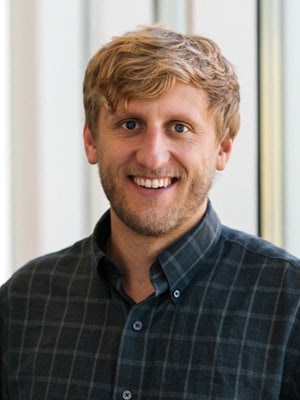- Undergraduate
Bachelor's Degrees
Bachelor of ArtsBachelor of EngineeringDual-Degree ProgramUndergraduate AdmissionsUndergraduate Experience
- Graduate
Graduate Experience
- Research
- Entrepreneurship
- Community
- About
-
Search
All Thayer News
Engineering Faculty Joins Academic Clusters
Nov 18, 2019 | by Hannah Silverstein | Dartmouth News
Three new scholars have joined Dartmouth's academic cluster initiative—created in 2014 to amplify Dartmouth's existing strengths in order to tackle some of humanity's greatest challenges.
"I want to welcome these new colleagues to Dartmouth," says Provost Joseph Helble. "Their presence adds to what Dartmouth faculty already do so well—collaborating across disciplinary boundaries. They and their colleagues in the academic clusters will inspire even more innovative scholarship, creative thinking, and intellectual curiosity on campus, which will have a great impact for years to come."
The initiative is adding 30 new faculty positions across the arts and sciences and the professional schools, forming 10 interdisciplinary academic clusters. Of these, 13 world-class scholars have already begun working on campus, including the three newest members, who fill positions in computational studies, specialized treatments for cystic fibrosis, and Arctic engineering and climate change.
The new members include:
Colin Meyer | Assistant Professor of Engineering, Thayer School of Engineering

Colin Meyer (Photo by Eli Burakian '00)
Cluster: Arctic Engineering in a Period of Climate Change
Previously: Postdoctoral researcher at the University of Oregon
What do you study, and why?
My research focuses on mathematical modeling of snow and ice mechanics in a variety of contexts—for example, glaciers, seasonal snowpacks, icy satellites, and frozen sediments. I'm fascinated by the fluid dynamics of solidification and the role of impurities in solidifying porous materials. And I'm motivated by important environmental problems, such as widespread snow melting on the surface Greenland ice sheet, as Arctic temperatures rise more quickly than anywhere else on Earth.
What's the advantage of an academic cluster focused on Arctic engineering and climate change?
The cryosphere is fragile and remote, yet it affects every human on the planet through water resources and sea-level rise. To understand how sea ice, alpine snow, and glaciers will change, as well as how they will affect society, interdisciplinary approaches are required. I am excited about the Thayer School's unique interdisciplinary approach as well as its connections to the Cold Regions Research and Engineering Laboratory.
What is your approach to teaching?
Learning is nonlinear, so I want to create an environment where students learn from mistakes and develop strong intuition. My goal is to help students act as researchers in the classroom, complementing mathematical analysis with curiosity and excitement.
For contacts and other media information visit our Media Resources page.
